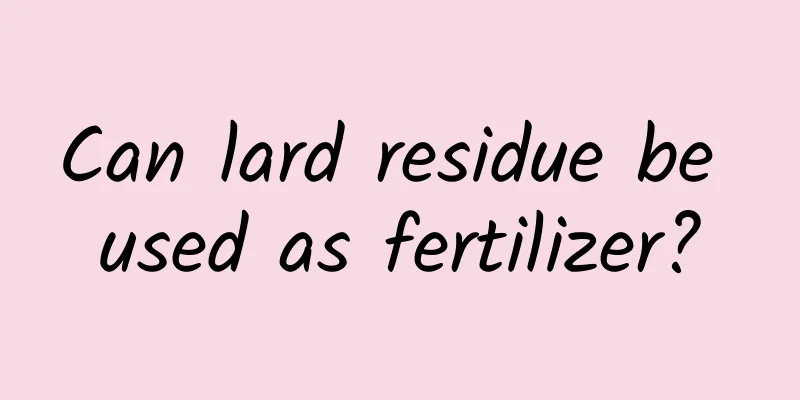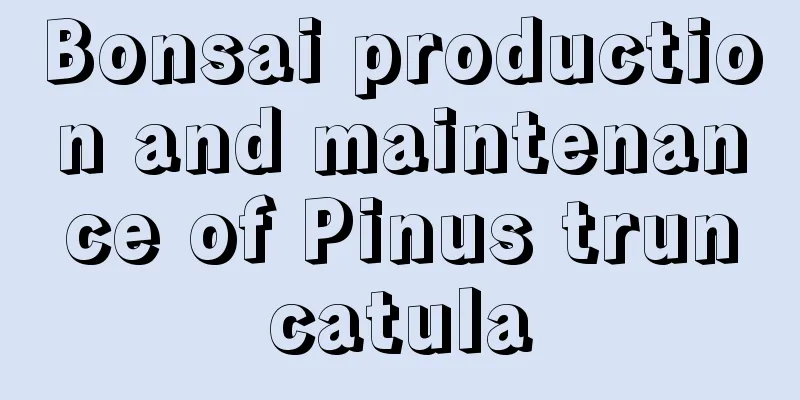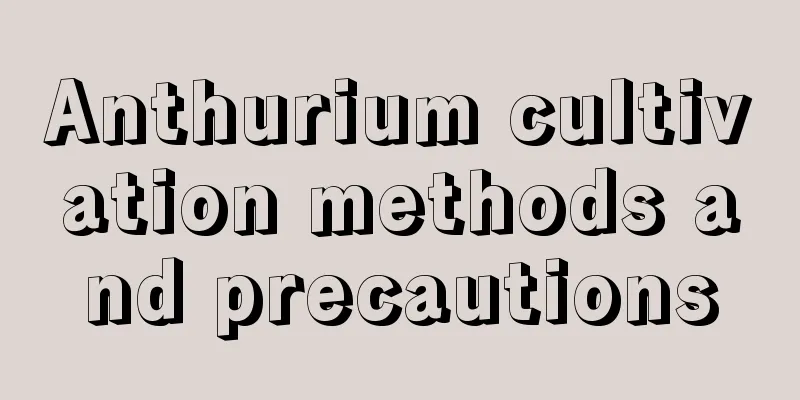Can lard residue be used as fertilizer?

Lard residue as fertilizerLard residue can be used as fertilizer, but it cannot be directly applied to the soil, otherwise it will cause plant seedlings to burn. It is best to wait until the lard residue is fermented and then stir the lard residue into the soil, which will be beneficial to the growth of plants. Lard residue can be used as flower fertilizer. The oil and protein contained in lard residue will be decomposed into nitrogen, phosphorus and potassium elements and absorbed by the roots of plants. This way, less organic fertilizer needs to be applied. It is very suitable for applying to honeysuckle and ivy. How to make fertilizer from lard residue1. Composting: Vegetable lard residue and other vegetables can be poured on the ground or soil according to the amount, covered with a layer of soil, watered and fermented. If the amount is not large, the high temperature generated is not sterile and does not kill insects. It is best to expose it to the sun for a few days to kill insect eggs and bacterial damage. 2. Fertilization: Put the lard residue into a container and add a certain amount of water for distillation. The clear water after distillation can be used as top dressing, and the residue can be mixed into the soil as base fertilizer. Key points for using lard residue fertilizer1. Use after it is fully decomposed: Immature oil residue will burn the seedlings, cause the appearance of maggots where flies lay eggs, damage the roots of crops, and make the crops grow poorly. 2. Pay attention to controlling the concentration: add water in a certain proportion to dilute and lower the concentration before watering the flowers. It is recommended to do it in small amounts multiple times. |
<<: Can melon seed shells be used as fertilizer?
>>: Can rotten meat be used as fertilizer?
Recommend
What kind of soil is good for potted weeping angel
The principle of soil use for Dripping Guanyin Wh...
Can potted Podocarpus be cultivated with river sand (what kind of soil is suitable for Podocarpus)
As long as the river sand content is not too litt...
What kind of soil is good for winter jasmine
1. What kind of soil is good for it? When growing...
How to prune the maidenhair fern
When is the right time to prune the maidenhair fe...
What to do if the plant does not bloom? The reason for not blooming
1. Reasonable exposure to light Reason: Plants ca...
How to propagate lavender and what to pay attention to
How to propagate lavender The main methods of lav...
Where do fruit tree seeds come from?
Where do fruit tree seeds come from? Naked ferns ...
How to breed a scented plant
Reproduction method For them, the reproduction me...
How many pounds does Tiegun Yam produce per mu?
Yield per mu of Tiegun Yam As a type of yam, iron...
How to propagate Impatiens by cuttings? Tutorial on how to propagate Impatiens by cuttings
Impatiens has bright and beautiful flowers with h...
What are the shapes of boxwood bonsai?
Boxwood flat shape The branches of boxwood spread...
When is the best time to prune a mango tree?
Mango tree pruning time Mango trees generally nee...
Is it good to keep spider plants at home?
1. Is it good for Feng Shui? Keeping it at home i...
Is peperomia easy to grow? What are the cultivation methods and precautions?
Is pepper grass easy to grow? Pepperwort is easy ...
How to grow the maidenhair fern more vigorously?
The maidenhair fern , also known as wire grass, h...









